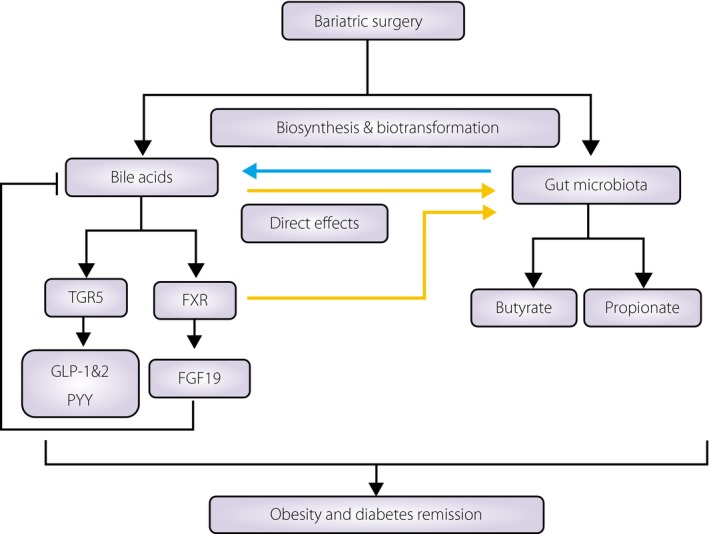Figure 2.

The relationship between the effects of bariatric surgery on the composition of bile acids and the gut microbiota. Bariatric surgery impacts bile acid enterohepatic circulation and increases bile acid levels, which might contribute to the metabolic effects after operations through signaling pathways. Furthermore, it also can change the pattern of intestinal microbiota, which can produce short‐chain fatty acids, such as butyrate and propionate, and improve metabolic regulation. Gut microbiota plays a key role in modulating bile acids, including their biosynthesis and biotransformation. Conversely, bile acids can directly inhibit bacterial growth as a detergent, and can indirectly regulate the composition of gut microbes through signaling pathways. FGF19 (known as FGF15 in mice), fibroblast growth factor 19; FXR, farnesoid X receptor; GLP‐1, glucagon‐like peptide 1; GLP‐2, glucagon‐like peptide 2; PYY, peptide YY; TGR5, a G protein‐coupled receptor.
